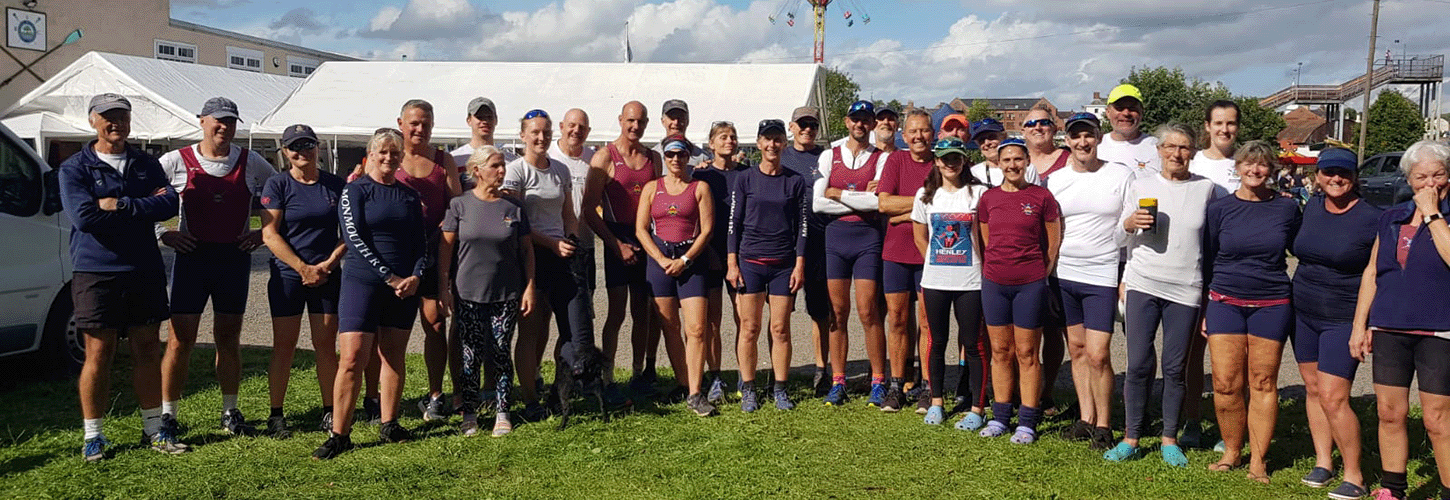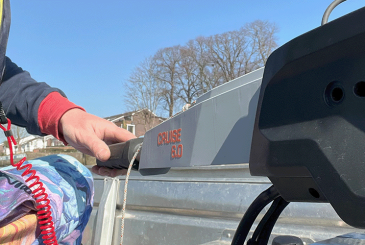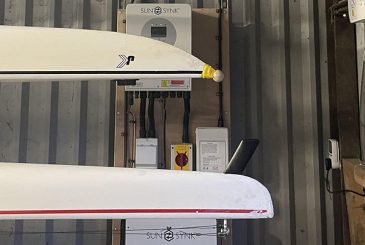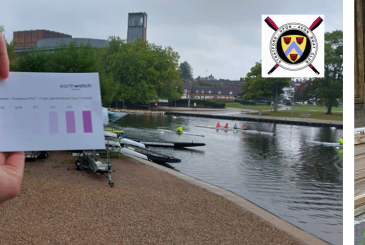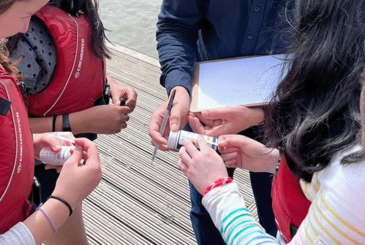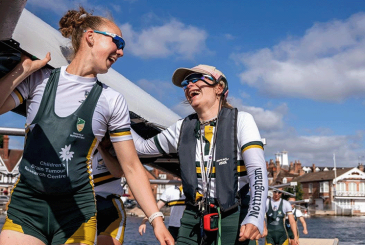Masters rowing is going from strength to strength, but not all clubs have a strategy in place to organise and optimise the burgeoning numbers in their squad. Two clubs who have cracked it are London RC and Monmouth RC. Lebby Eyres finds out how.
Club all around the country are constantly balancing the needs of their different squads. But the explosion of masters rowing over the past decade – this year’s British Masters Rowing Championships had a record entry – has left some clubs on the back foot.
Often, clubs leave masters squads to their own devices: coaching each other, using private boats, and organising their own transport to races. But two clubs have grasped it is worth investing in older rowers: not only are they more likely to stay put, pay subs year after year and volunteer, but also because they inspire younger generations.
When it comes to racing, ‘a win’s a win’, too, whatever age group it’s at. Plus, masters often have “more cash to put behind the bar”, as former London RC captain James Sexton-Barrow says, which is always good for club morale!
London and Monmouth won the Victor Ludorum at the British Masters Rowing Championships in 2024 and 23 respectively. Here their masters reps share their tips on how to galvanise high performance masters rowing.
Recruiting masters rowers
At London RC, the masters section has undergone a remarkable transformation in recent times. Once an afterthought, the group has blossomed into a community of rowers from their 20s to their 60s.
“Ten years ago, we didn’t have much of a masters presence except for a group called the ‘Irregulars’. The name speaks for itself,” Sexton-Barrow explains. “It was either the performance-focused senior squad or the more casual, recreational rowers. We realised we had a wealth of experienced rowers who’d stepped back from the senior squad, but had a lot to offer.
“So we formed the ’Millennials’: a group of former senior squad members who wanted to keep rowing, but without a 12 times-a-week training regime.”
The Millennials began attracting rowers from other clubs, as well as a surprising number of Australians and Kiwis. And as female membership opened up, so the ’MillenniGALS’ were formed, too.
Getting a coach on board in Monmouth
Recruiting masters has never been a problem for the Welsh club, as the majority of the squad fall into that bracket. But what was sorely needed was a coach. “We did a survey in 2021 and coaching came up as a big priority,” says Liz Lewis, Monmouth RC’s masters co-ordinator. “As a result, the committee brought in former Olympian Tim Male who had moved to the area.
“Before, we had people rowing in their own crews, with different styles learned in different eras. Now Tim has introduced a uniform style, so even if it’s a scratch crew it’s easy to create a cohesive unit.”
London RC has introduced Dave Loveday, a coach at Westminster School, who works on a session by session basis. Masters had been chipping in around £10 each per month to pay for sessions but, due to “the success of the British Masters and the growth of the group”. The committee is now moving towards a more sustainable funding plan.
Training
Both clubs have implemented structured training sessions, including weekly ergs and on-water time trials. “The base is two water sessions and one erg,” Sexton-Barrow notes. “But most people add another water session, erg and weights to that. Every three weeks, the squad races a set course on the Tideway, so we know who our fastest rowers and scullers are.”
At Monmouth, Male sets a new programme every six weeks to keep things challenging. Lewis says, “Midweek, we have Pilates; a coached hard erg session; weights; UT2 sessions, where we might do 3×20 minutes or 2×30 minutes, and a rest day. At the weekend, the performance squads have two water sessions per day. On Saturday, Tim works with all the squads together for a technical second outing.”
Equipment and boat availability
Access to high-quality equipment has been a crucial factor in both clubs’ success. “As the senior squad gets new boats, the older ones filter down to us, so we’re always rowing in equipment that’s only a few years old,” says Sexton-Barrow.
Meanwhile, at Monmouth, a policy of keeping the equipment in tip-top condition has inspired athletes. Lewis says, “During Covid, our boatman went through the entire fleet and got everything in top-notch condition. I think that’s really changed the way everyone treats the equipment now.”
Targeting the Victor Ludorum
Both London and Monmouth had a clear strategy when it came winning the Victor Ludorum at the British Rowing Masters Championships, which takes place every June, usually in Nottingham. As Sexton-Barrow explains, “We noticed the bigger boats, like eights, were worth more points than singles or doubles. Our strength at London is volume, so it was easier for us to put in lots of eights.
“Some competitors had their own personal ambitions too, so could still sign up for singles or doubles, but we asked them to sign up for two more events as well. All for the greater good!”
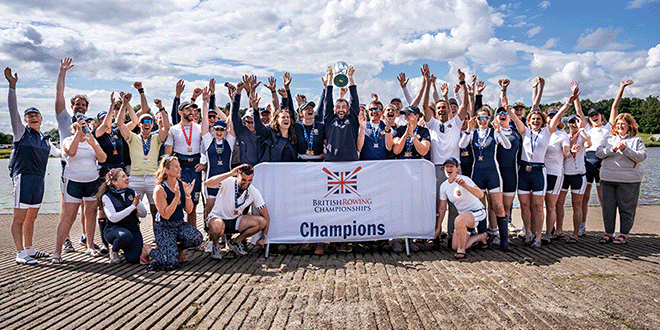
Monmouth made a concerted effort to get competitors from both the performance and club squads. “We try to get people into the right age category, but if there’s no opposition, we’ll race up or down,” Liz explained. “Tim did an amazing job of finding a place for everyone, whether it was in the championship events or the races for less experienced rowers. He told us, ‘Remember, everything you do will help get points for the club.’”
Building a cohesive community
Both clubs are delighted that masters success has contributed to a sense of community and camaraderie. Sexton-Barrow says, “It’s not only about winning the cup: that’s almost irrelevant in some ways. The real reward was the journey we took, and realising we are all part of one club, not different groups of individuals.
“We are all trying to make the boat go as quickly as possible, at whatever age you are.”
Lewis agrees, saying, “Everyone at Nottingham was helping each other in and out of boats, carrying equipment, supporting each other, cheering for each other, loading and unloading the trailer. It’s helped to create a really fantastic club spirit at the moment.”
Looking ahead
Neither club will be resting on its laurels. “We’ll definitely be going to Masters Champs again next year, and there’s talk of going to the European Masters as well,” Lewis says. “It’s about what the members want to do and who wants to race. What we’ve done is put out a list of all the events we could do throughout the season and get people to rank their chosen events.”
For London RC, the focus is on the World Masters Championships, which are set to take place in Banyoles, Spain in 2025. Sexton-Barrow sees this as a prime opportunity to take the masters squad to the next level. “Spain’s not so far away, so we’d be crazy not to make a big push for it. It’s definitely a squad goal.”
But who’s going to win the Victor Ludorum at the 2025 British Rowing Masters Championships? WIth seven different clubs winning it across the last eight times it’s been awarded, the field is wide open. Could it be YOUR club?


